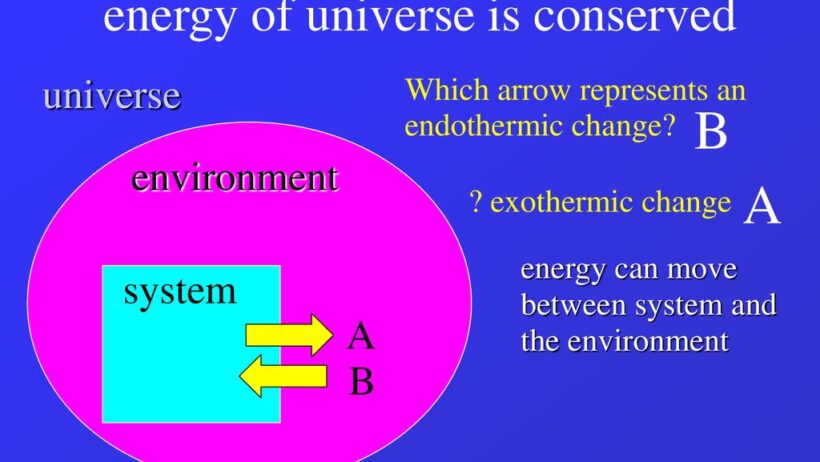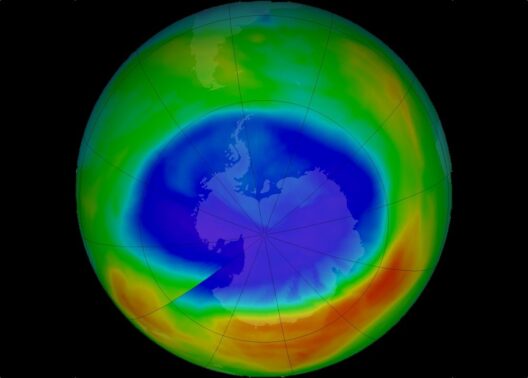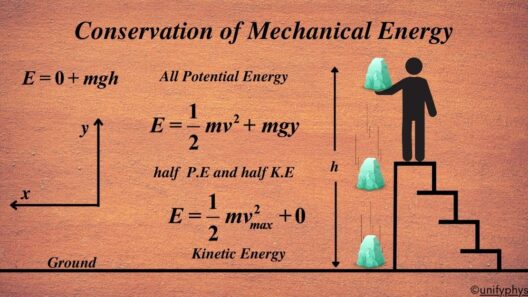When pondering the perplexing nature of our universe, one might muse: Is energy truly a conserved quantity in the grand scheme of existence? This seemingly simple question invites a myriad of scientific inquiries and philosophical reflections. Energy conservation forms one of the fundamental principles that govern the physical world. Hence, a deeper exploration into whether energy is preserved throughout the cosmos opens a Pandora’s box of intriguing considerations.
At its core, the principle of energy conservation asserts that energy cannot be created or destroyed but can only change forms. This axiom underpins numerous scientific domains, ranging from classical mechanics to thermodynamics, and intriguingly influences our understanding of cosmology. Yet, to fully grasp this concept, we must traverse various manifestations of energy, from kinetic to potential, and even delve into the more esoteric realms of nuclear and thermal energy.
The first critical aspect to consider is the Law of Conservation of Energy, a principle deriving from classical physics. According to this law, within an isolated system, the total energy remains constant. This proposition is impressively validated across an array of experiments and technological applications, such as engines and electrical systems, where energy continuously shifts from one form to another, yet the cumulative amount remains unchanged. For instance, when a car accelerates, chemical energy from gasoline transforms into kinetic energy, despite an apparent loss (friction, heat) in the system.
Transitioning to the quantum realm introduces profound complexities. In quantum mechanics, energy conservation still holds, yet it operates within the probabilistic frameworks that define atomic behavior. Energy states in particles may transition with apparent spontaneity, leading to questions regarding the very nature of conservation at such infinitesimal scales. Consideration must therefore be given to quantum fluctuations—temporary changes in energy levels that seem to flout classical understandings of a static energy conservation principle.
Furthermore, cosmologists grapple with energy conservation on a cosmic scale, particularly in relation to the expanding universe. The Big Bang theory posits that the universe began approximately 13.8 billion years ago, and since then, space itself has been stretching, carrying galaxies along with it. This cosmic expansion raises a disquieting query: does energy remain conserved within an ever-expanding universe? The phenomenon of redshift in light, indicating that distant galaxies are moving away from us, implies that energy is diluting over cosmic distances, challenging traditional conservation narratives.
The concept of dark energy further complicates this debate. Dark energy is the enigmatic force believed to be driving the universe’s accelerating expansion. Its emergence seems to inject energy into the cosmos without violating traditional conservation laws, but it simultaneously invokes skepticism about the static nature of energy preservation across time and space. If energy can manifest in unexpected forms, like dark energy, can we unequivocally assert that it remains conserved?
One must examine the implications of these theoretical conundrums. If energy indeed behaves counterintuitively on cosmic scales, we may confront a paradigm shift in our understanding of thermodynamics and energy principles. The early universe’s conditions could have been vastly different, allowing for scenarios where energy interacted in ways we have yet to comprehend fully. Herein lies a playful challenge: if energy can escape traditional strictures in the cosmos, what innovative technologies or methodologies might arise from this fundamental shift in perspective?
Environmental science provides a pertinent lens to evaluate energy conservation in our everyday experiences. Renewable energy sources—solar, wind, and hydro—epitomize efforts to harness energy without depleting natural resources. The intention is to strike a balance whereby the energy extracted does not exceed the planet’s ability to regenerate. This delicate equilibrium serves as a microcosm of cosmic energy conservation, mirroring broader principles espoused by celestial phenomena.
However, as we endeavor to maintain this balance, we must confront the human factor—the insatiable consumption of energy resources. From fossil fuels to electricity, humanity’s demand can outstrip renewable efforts, exacerbating issues such as climate change. This divergence raises another essential query: do our methods of energy consumption and conservation align with the fundamental principles that govern energy in the universe? This paradox beckons a reconsideration of our consumption patterns, urging a shift towards a more harmonious coexistence with the natural world.
In conclusion, the question of whether energy is a truly conserved quantity in the universe engenders a rich tapestry of inquiry spanning numerous disciplines. From the microcosm of atomic interactions to the macrocosm of cosmic events, energy manifests in myriad forms and transformations. While classical laws underpin our understanding of conservation, emerging theories and cosmic phenomena challenge these perceptions, inviting continued exploration. Each unanswered question compels a deeper curiosity about the intricate fabric of the universe and our place within it. Ultimately, acknowledging our role in this delicate balance of energy consumption and conservation is paramount as we navigate the dual challenges of scientific inquiry and environmental stewardship.








